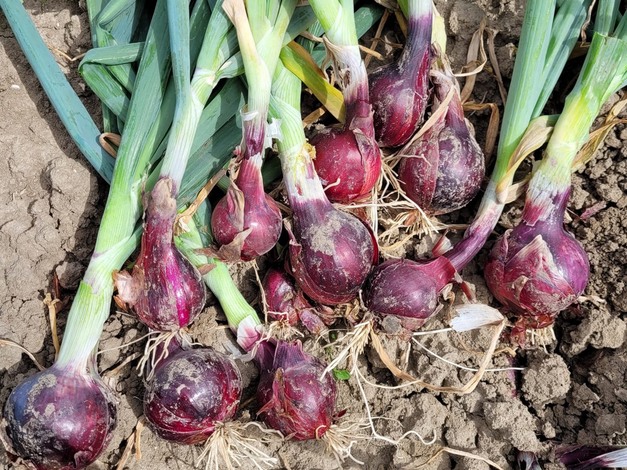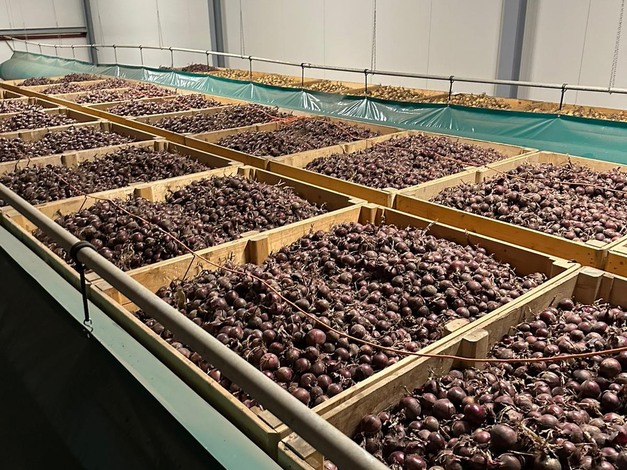 In the Netherlands, most organic onions are still in the ground, and looking ahead, Green Organics' Robbert Blok expects below-average yields. "Organic onion acreage has remained fairly stable, but we had quite an unusual growing season. Yields will, thus, not be great in the Netherlands or the countries around it. This summer's strange weather caused fusarium pressure, and the question is how the onions will perform later in storage," he begins.
In the Netherlands, most organic onions are still in the ground, and looking ahead, Green Organics' Robbert Blok expects below-average yields. "Organic onion acreage has remained fairly stable, but we had quite an unusual growing season. Yields will, thus, not be great in the Netherlands or the countries around it. This summer's strange weather caused fusarium pressure, and the question is how the onions will perform later in storage," he begins.
This year, red onions are seriously lagging in conventional cultivation. Not so in organic cultivation, according to Robbert. "Red organic onions remain quite a small crop compared to yellow organic onions. Also, the organic market has different laws and numbers. I think relying on a market’s mood is always dangerous; it's not always based on the truth either."

Last year, many organic onions found themselves in conventional channels. "That gave a somewhat distorted picture of organic onion sales. I'd obviously prefer that organic onions be sold as such. Still, I can't blame organic growers if they can sell their onions for a euro per kilo in the conventional channel," Robbert says.
"This year, the conventional market isn't as present, so the organic market will have to do the work itself. Organic onions have to rely mainly on the second half of the season. I've been in this sector for 18 years, and the first half is always quiet, exports-wise. The Netherlands' neighboring countries are becoming increasingly self-sufficient and only come knocking later in the season."
"Conventional onions are sold worldwide, but Europe is the organic onions market. With all the geopolitical and economic developments, organic sales are tough. Consumers are more inclined to buy cheaper products, which sales reflect. I foresee that undoubtedly working out in the long run, but I doubt there will be explosive short-term growth in the Dutch organic onion market. It will more likely take it slow and stabilize," explains Robbert.

For Green Organics, organic onion availability is not a huge issue. "We source most locally. Thanks partly to our marketing toward the industry, we have quite a group of Green Organics-minded, local growers. We brainstorm the whole crop plan. However, organic growers carefully consider whether to cultivate onions. It's an expensive, labor-intensive crop, and you don't get the yields you want every year. A year like last year, where plenty of organic onions ended up in the conventional channel, distorts that significantly."
According to Blok, the sector professionalizing in areas like optical sorting is a nice development. "For that, we work with Go-Products from Nagele as a strategic partner. These new techniques allow us to distinguish ourselves by sorting organic onions in all desired sizes and qualities. We find waste prevention paramount. Thanks to optical sorting, we can sort in a way that we also have use for our tare onions. So, 100% of the onions have a destination and value. We're investing much of our efforts into that," he concludes. (IH)
Robbert Blok
[email protected]
Green Organics
De Kromme rijn 1
8253 RG Dronten
(0)321 385 340
[email protected]
www.greenorganics.nl
